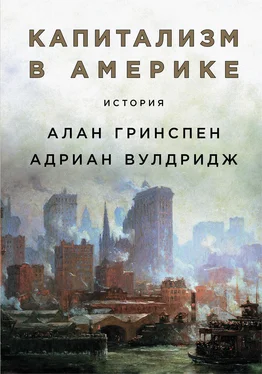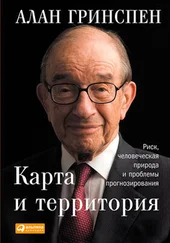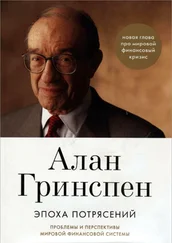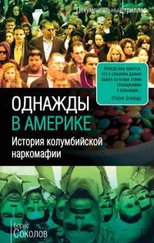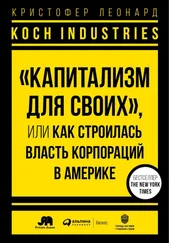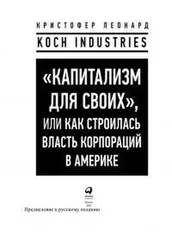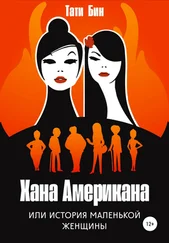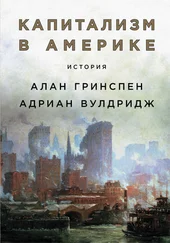William Leuchtenburg, The American President: From Teddy Roosevelt to Bill Clinton (Oxford: Oxford University Press, 2015), 122.
Там же, 130.
David M. Kennedy, Freedom from Fear: The American People in Depression and War, 1929–1945 (New York: Oxford University Press, 1999), 30.
James Grant, The Forgotten Depression: 1921: The Crash That Cured Itself (New York: Simon & Schuster, 2013).
Liaquat Ahamed, Lords of Finance: The Bankers Who Broke the World (New York: Penguin Press, 2009), 271–274. (Ахамад Л. Повелители финансов. Банкиры, перевернувшие мир. – М.: Альпина Паблишер, 2017).
Kevin Phillips, Wealth and Democracy: A Political History of the American Rich (New York: Broadway Books, 2002), 58.
Robert J. Gordon, The Rise and Fall of American Growth: The U. S. Standard of Living Since the Ci vil War (Princeton, NJ: Princeton University Press, 2016), 167.
Charles R. Morris, A Rabble of Dead Money: The Great Crash and the Global Depression, 1929– 1939 (New York: Public Affairs, 2017), 35.
Kennedy, Freedom from Fear, 17.
Gordon, The Rise and Fall of American Growth, 160.
Там же, 158.
Там же, 132.
Anthony Mayo and Nitin Nohria, In Their Time: The Greatest Business Leaders of the Twentieth Century (Boston, MA: Harvard Business School Press, 2005), 91.
Louis Cain, ed., "Transportation", в: Economic Sectors, vol. 4 of Historical Statistics of the United States: Millennial Edition, ed. Susan B. Carter et al. (New York: Cambridge University Press, 2006), 773.
Gordon, The Rise and Fall of American Growth, 123.
Adolf Berle and Gardiner Means, The Modern Corporation and Private Property (New York: Macmillan, 1932), 60.
Там же, 35.
Там же, 3.
Mayo and Nohria, In Their Time, 87.
Thomas K. McCraw, American Business Since 1920: How It Worked (Wheelan, IL: Harland Davidson, 2000), 21.
Oliver E. Williamson, Markets and Hierarchies: Analysis and Antitrust Implications (New York: Free Press, 1975).
Richard Tedlow, The Rise of the American Business Corporation (Chur, Switzerland: Harwood Academic Publishers, 1991), 57–59.
McCraw, American Business Since 1920, 30.
Там же, 30–31.
Bhu Srinivasan, Americana: A 400-Year History of American Capitalism (New York: Penguin Press, 2017), 313.
Claude S. Fischer, Made in America: A Social History of American Culture and Character (Chicago: University of Chicago Press, 2010), 68.
Charles Rappleye, Herbert Hoover in the White House: The Ordeal of the Presidency (New York: Simon & Schuster, 2016), 42.
Там же, 11.
Kennedy, Freedom from Fear, 11.
Charles R. Morris, A Rabble of Dead Money: The Great Crash and the Global Depression, 1929– 1939 (New York: Public Affairs, 2017), 111–112.
Charles Rappleye, Herbert Hoover in the White House: The Ordeal of the Presidency (New York: Simon & Schuster, 2016), 103.
David M. Kennedy, Freedom from Fear: The American People in Depression and War, 1929–1945 (New York: Oxford University Press, 1999), 35.
Там же, 41.
Там же, 40.
Ron Chernow, The House of Morgan: An American Banking Dynasty and the Rise of Modern Finance (New York: Touchstone, 1990), 302.
Там же, 346.
Alan Greenspan, The Map and the Territory 2.0: Risk, Human Nature, and the Future of Forec asting (New York: Penguin Press, 2013), 73–87. (Гринспен А. Карта и территория. Риск, человеческая природа и проблемы прогнозирования. – М.: Альпина Паблишер, 2015).
Alan Greenspan, "The Crisis," Brookings Papers on Economic Activity, Spring 2010.
Adam Cohen, Nothing to Fear: FDR's Inner Circle and the Hundred Days That Created Modern America (New York: Penguin Press, 2009), 1.
Harold Cole and Lee Ohanian, "New Deal Policies and the Persistence of the Great Depression: A General Equilibrium Analysis," Journal of Political Economy, 112, no. 4 (August 2004), 779–816.
Burton Folsom Jr., New Deal or Raw Deal? How FDR's Economic Legacy Has Damaged America (New York: Threshold Editions, 2008), 2 (Фолсом Б. Новый курс или кривая дорожка? Как экономическая политика Ф. Рузвельта продлила Великую депрессию. – М.: Мысль, 2012).
Liaquat Ahamed, Lords of Finance: The Bankers Who Broke the World (New York: Penguin Press, 2009), 131.
Там же, 164.
"The Battle of Smoot-Hawley," Economist, December 18, 2008, https://www.economist.com/node/12798595.
Douglas A. Irwin, Clashing over Commerce: A History of U. S. Trade Policy (Chicago: University of Chicago Press, 2017), 386.
Kennedy, Freedom from Fear, 77.
Если бы банк был только один, все чеки принимались бы только в нем. При такой прозрачной системе расчетов дефолт невозможен. С четырьмя банками риск цепного финансового обвала ниже, чем с 25 000.
Ahamed, Lords of Finance, 4.
Там же, 173–174.
Словечко «гувервилли» придумал Чарльз Майкельсон, руководитель отдела рекламы и пропаганды Национального комитета Демократической партии.
Chernow, The House of Morgan, 314.
Morris, A Rabble of Dead Money, 245.
Cohen, Nothing to Fear, 60–61.
Kennedy, Freedom from Fear, 121.
William Leuchtenburg, The American President: From Teddy Roosevelt to Bill Clinton (Oxford: Oxford University Press, 2015), 149.
Kennedy, Freedom from Fear, 153.
Там же, 276–277.
Читать дальше
Конец ознакомительного отрывка
Купить книгу
